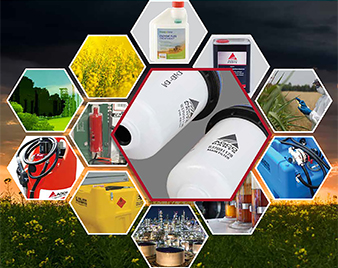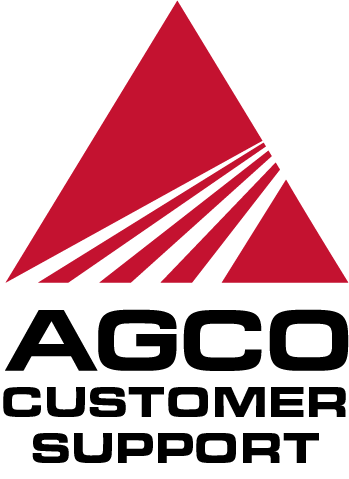Biodiesel and what it means for you
26th March 2021

In these ever-changing times, sustainability is of utmost importance and the requirement to increase the volume of bio fuel in petrol and diesel is one more step towards a cleaner planet.
In 2019 the agricultural industry was required to increase the volumes of renewable content used in fuel by adding biodiesel (fatty acid methyl ester - FAME). But what does this mean for you and your farm machinery?
The biodiesel content in off road vehicle diesel was originally much lower than that used for on road vehicles and the sudden increase in bio diesel content led to problems such as filter clogging which, in turn, has resulted in machine downtime issues and fuel filters needing to be replaced prematurely.
Click here to download our leaflet for more information on biodiesel and the solutions available from your AGCO dealer to ensure the optimum performance of your machine.
The importance of clean fuel
Diesel contamination is caused by a wide range of factors including dirt, water, bacteria and chemical contaminants getting into the fuel. This can result in poor machine performance, reduced fuel economy and in the worst case, a costly mechanical breakdown. That’s why keeping the fuel, storage and dispensing equipment clean is crucial to maintaining the long term optimum performance and uptime of your machine.
Preventing diesel fuel contamination
First check with your fuel supplier that deliveries meet the required level of cleanliness as defined in ISO 4406 (the industry standard). Your AGCO dealer will be able to advise the required level for your machine.
If you feel there is an issue, speak to your supplier and request information on the delivered fuel cleanliness, which is referred to as the particle count. There should be a notification of the ISO standard codes in the form of three numbers, for example 17/15/12. Check this against the recommended fuel cleanliness recommendation for your machine as advised by AGCO.
Tips on biofuel storage and equipment
Make sure that storage tanks are routinely maintained as any contamination in the storage tank will, in time, end up in the fuel system of the machine. Industry experts advise periodically cleaning the storage tank and the use of inline filters which will capture any tank contamination before being pumped into the machine. These filters also require regular maintenance in line with manufacturer’s recommendations.
Consider how long the fuel is being stored for, industry experts advise that smaller tanks, with more frequent deliveries can lower the risks of contamination occurring in the tank. Your fuel supplier should be able to provide advice on the ideal storage tank and delivery frequency.
Tips for refuelling your machine
Ideally, the machine should be fuelled directly from the main storage tank, using the inline filtration system and delivery system. If this isn't possible, ensure that fuel decanted from the main tank is only transferred to approved fuel containers and in line with government advice.
Your AGCO dealer stocks a range of fuel storage and dispensing equipment and has the expertise to advise which products are best suited to your requirements.

